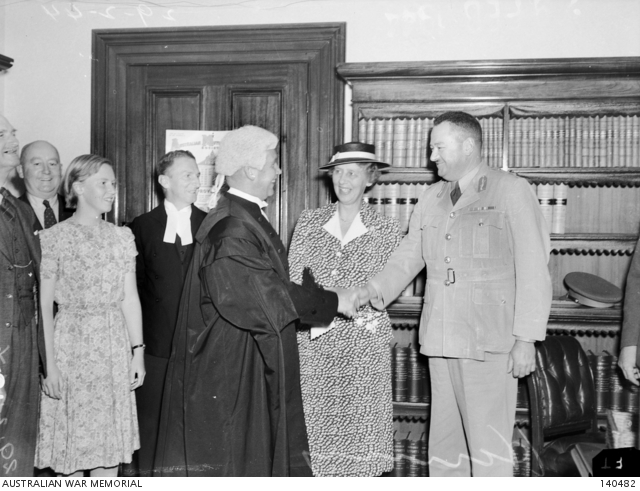Fifty Australians - Ned Herring
After service in the First World War, Herring chose a legal career rather than a military one. He eventually excelled at both.
Lieutenant General the Hon. Sir Edmund Francis Herring, KCMG, KBE, DSO, MC, ED, QC (1892–1982)
A Rhodes Scholar for Victoria at Oxford University, Herring served as an officer in the British Army in the First World War and was awarded the Distinguished Service Order and Military Cross. After completing a law degree, he returned home in 1920. Between the wars he became a King’s Counsel and a senior militia officer; he was also involved in conservative politics, including a period with the clandestine right-wing organisation called the White Army.
In the Second World War Herring was there from the beginning, accompanying the 6th Division overseas as its senior artillery commander. He served in North Africa and Greece, and in August 1941 was given command of the division. In the early months of the Pacific war he commanded Northern Territory Force, and with vigorous application transformed its readiness to repel any Japanese attack.
Despite their different characters and temperaments, the modest and deeply religious Herring had a good relationship with the Commander-in-Chief, General Sir Thomas Blamey, and they trusted each other. In September 1942, when the commander of New Guinea Force, Lieutenant General Sydney Rowell, was sacked, Herring replaced him.
General Herring became responsible for the main Australian offensives against the Japanese in New Guinea. He got vital cooperation from the Americans, with whom he was on good terms. The enemy was driven back to the coast. Later operations were successfully conducted against Salamaua, Lae and Finschhafen.
Herring retained his command until October 1943, mostly managing to avoid the political minefield and jealousies surrounding his position. The following January he was given a great civil honour by being appointed Chief Justice of Victoria, a position he held until 1964. He remained widely respected in legal, academic and military circles for a long time; he was Lieutenant Governor of Victoria from 1945 to 1972. Upon his death he was given a state funeral.
William Dargie, Lieutenant General the Honourable Sir Edmund Herring 1945
An informal reception for Sir Edmund Herring soon after his appointment as the Chief Justice of Victoria in early 1944.
- Home
- Previous: Jo Gullett
- Next: Nora Heysen


